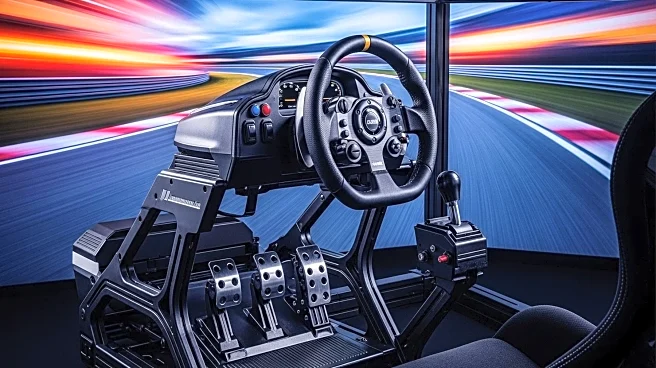What is the story about?
What's Happening?
Max Verstappen, alongside teammate Chris Lulham, secured a significant victory in the ninth round of the Nürburgring Endurance Series, driving the Emil Frey Racing’s No. 31 Ferrari 296 GT3. This win was achieved with a lead of over 20 seconds, marking Verstappen's successful debut in the GT3 class. Both drivers have extensive experience in sim racing, which is credited with enhancing their real-world racing skills. The victory has sparked discussions on the potential of sim racing to influence the future of motorsport, as it provides a cost-effective training ground for aspiring drivers.
Why It's Important?
The success of Verstappen and Lulham underscores the growing recognition of sim racing as a legitimate training tool for professional motorsport. This development could democratize access to racing, allowing more individuals to hone their skills without the prohibitive costs associated with traditional racing. As sim racing technology continues to improve, it may become an essential component of driver training programs, potentially altering the landscape of motorsport by producing a new generation of drivers who are adept in both virtual and real-world racing environments.
What's Next?
The implications of this victory could lead to increased investment in sim racing platforms and technology, as teams and sponsors recognize the potential for discovering and developing talent through virtual racing. Additionally, other drivers and teams may begin to incorporate sim racing more heavily into their training regimens. The success of sim racers in real-world competitions could also prompt regulatory bodies to consider integrating sim racing achievements into the criteria for professional racing licenses.
Beyond the Headlines
This development raises questions about the traditional pathways to professional racing and whether sim racing could eventually replace or supplement karting and other entry-level motorsport categories. It also highlights the potential for sim racing to become a standalone competitive sport, with its own leagues and championships gaining prominence alongside traditional motorsport events.















